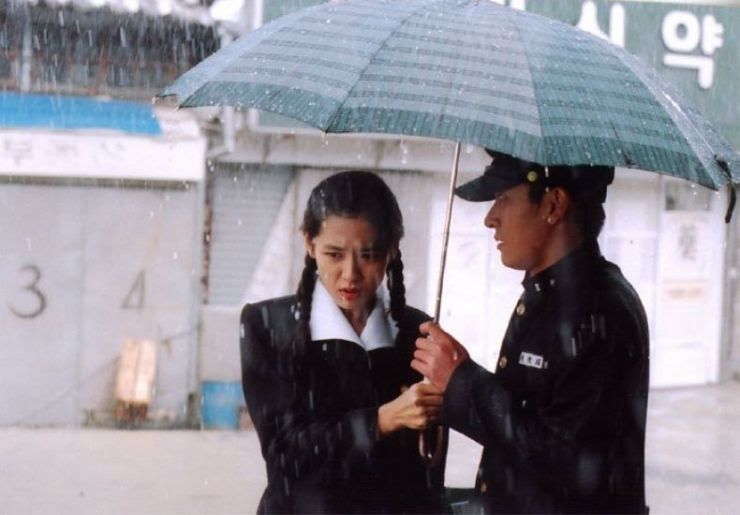
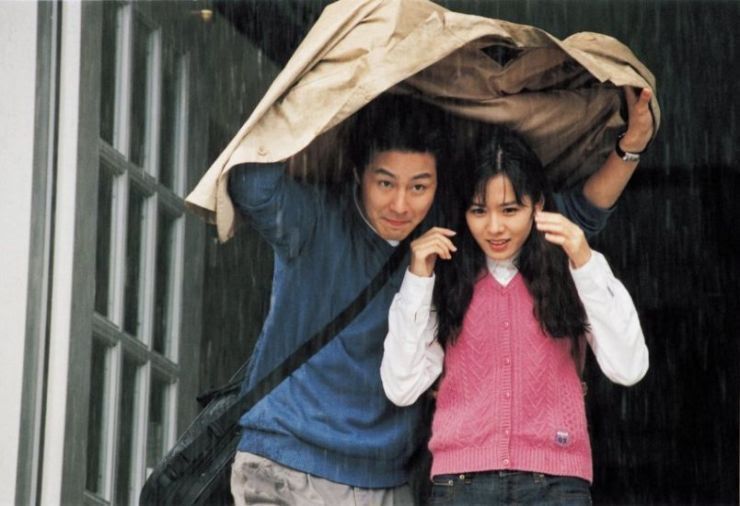
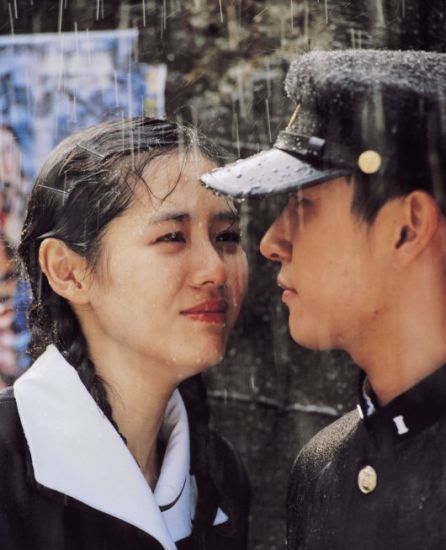
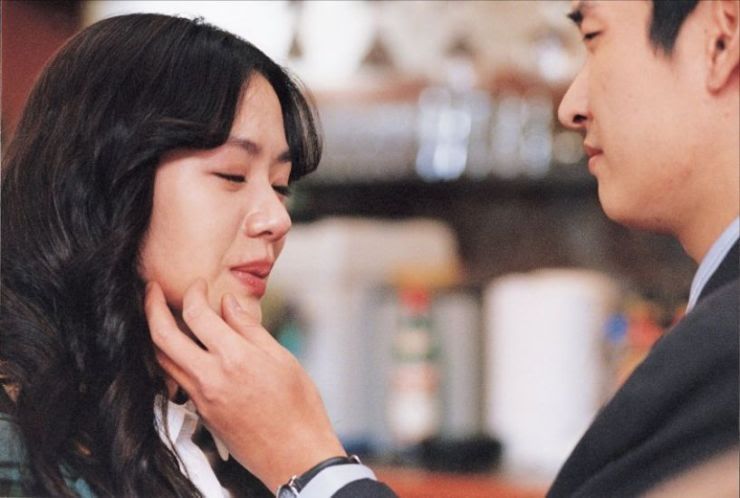
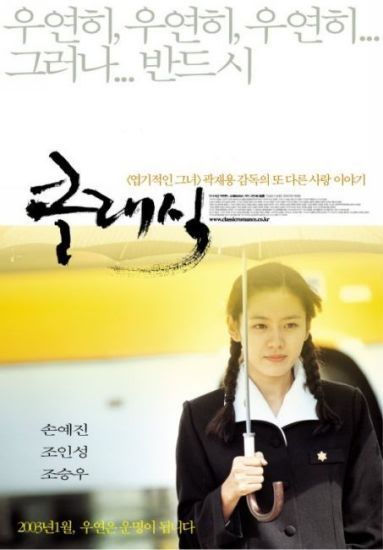
The Classic is a Korean movie originally released in 2003.
The film tells the parallel love stories of a mother and daughter. The story of the mother is told partially in flashbacks.
The movie starts in the present day. The daughter, Ji-Hae (Son Ye Jin), is cleaning up around her house when she comes across a box full of old letters that detail the story of her mother, Joo-Hee (also played by Son Ye Jin), in a dramatic tour de force. Periodically in the movie, Ji-Hae reads one of those letters, which starts a flashback scene in which the story of the mother is told. These flashbacks are intertwined with Ji-Hae's own story, in which she falls for a fellow student involved in the school theater.
The movie details both relationships. The mother, Joo-Hee, visits the countryside as a student one summer and meets Joon-Ha (Jo Seung Woo). Together they explore the countryside, playing near a river which they both will always remember as their special place. When a storm starts, and they take shelter together under a tree, but not before Joo-Hee twists her ankle and is rendered helpless. Joon-Ha takes her on his back and they run home, only to be confronted by her parents. Before they separate, Joo-Hee gives him a necklace, which he keeps close as a precious reminder of their time together. Unfortunately, as Joon-Ha finds out, a third party prevents any deepening of their relationship. Joo-Hee has been engaged to marry Tae-Soo, Joon-Ha's friend, through her parents. But Tae-Soo, a noble friend, finds out about Joo-Hee and Joon-Ha's attraction and helps the two communicate secretly by using his own name in place of Joon-Ha's in their letters. When Tae-Soo's father finds this out, however, he beats Tae-Soo. Tae-Soo tries unsuccessfully to commit suicide so that his two friends can be together.
Meanwhile, in the present, Ji-Hae falls for her friend's love interest, but he seems not to notice. Then, in a sweet scene, they take shelter from the rain together under the same tree. He uses his coat to cover both of them and escorts her to where she needs to go. The moment was magical, but she feels his help was only due to his generous nature and not from any feelings for her on his part.
Back in the past, Joon-Ha is guilt-ridden over his friend's attempted suicide and Joo-Hee's own guilt. Determined to prevent any more hurt to her, Joon-Ha joins the army and goes to Vietnam. There he loses his eyesight while saving a fellow soldier. When he returns to Korea, he meets with Joo-Hee, trying to hide his blindness, and convinces her he has married in hopes she will move on with her life. Though heart broken that their relationship cannot continue, she does move on and eventually marries Tae-Soo, Joon-Ha's kind friend. After they have been married for several years and have a young daughter, Ji-Hae, Joo-Hee is approached by friends of Joon-Ha, who relate Joon-Ha's last wish: that his ashes be scattered by Joo-Hee in the river, now reservoir, where they first met. She then finds out that Joon-Ha only got married after she had and had a son her daughter's age. The heart-break is too much; she cries.
In the present, Ji-Hae's own story unfolds. Her love interest reveals his true feelings for Ji-Hae, feelings that mirror her own. It is also revealed that their taking shelter together during the storm was no accident; he purposely left his umbrella behind so that he could join her under the tree. Then, when Ji-Hae pensively reveals her mother's story to him, tears stream down his face. He wordlessly lifts a necklace from around his neck and places it around hers. It is the necklace that Ji-Hae's mother, Joo-Hee, had given to Joon-Ha when they met. The circle is completed; Joo-Hee's daughter and Joon-Ha's son have fallen in love.



